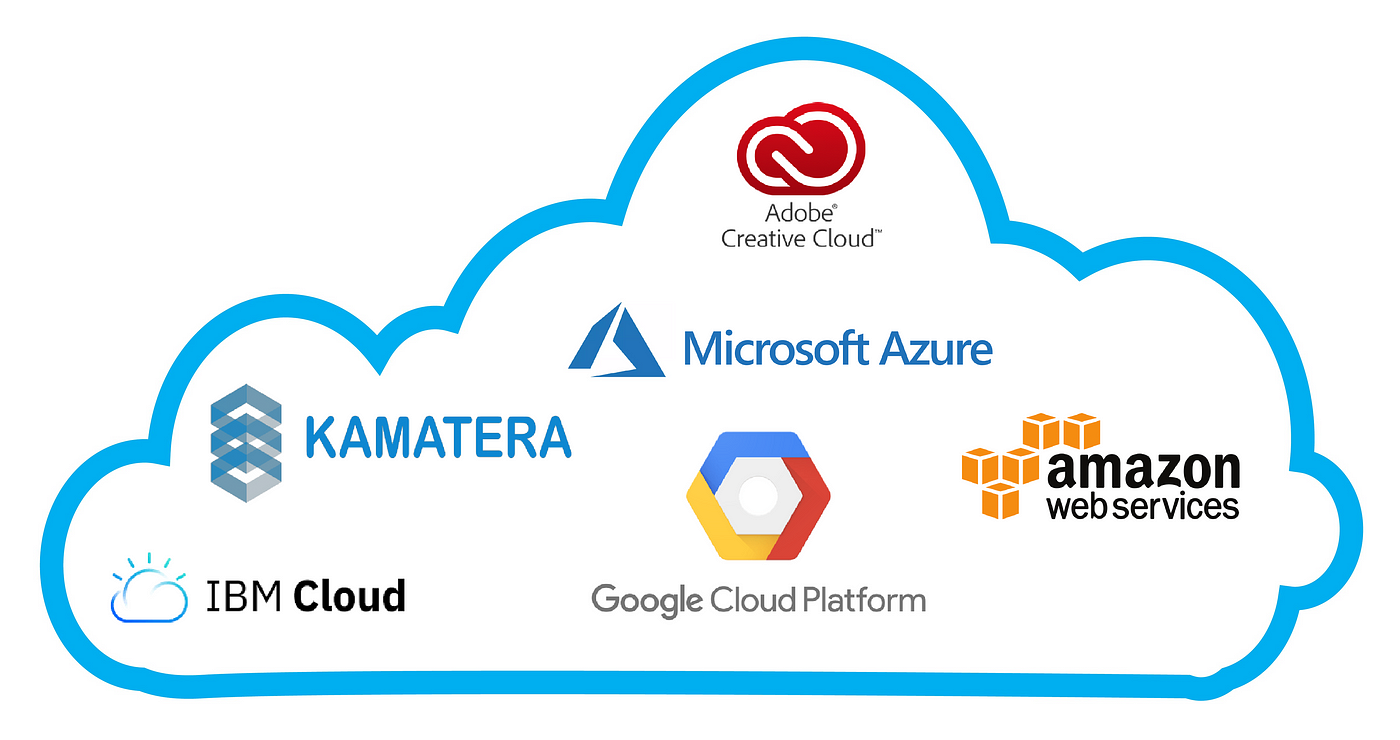Streamline IT Monitoring With Cloud Solutions
In today's quickly developing electronic landscape, the function of IT monitoring is becoming progressively intricate. Organizations are frequently seeking ways to improve their IT procedures to stay affordable and agile. Cloud solutions have emerged as a viable option for businesses seeking to boost effectiveness, lower costs, and enhance total IT efficiency. By welcoming cloud modern technology, companies can achieve higher flexibility, scalability, and safety in managing their IT framework. But how exactly do these cloud solutions reinvent typical IT monitoring methods? Allow's discover the transformative effect of leveraging cloud solutions on IT operations and the essential factors to consider for successful application.
Advantages of Cloud Services

Additionally, cloud services make it possible for organizations to enhance their functional performance by improving procedures and reducing the time and resources needed for handling IT framework. With cloud solutions, companies can automate routine tasks, such as software application updates and information backups, liberating IT teams to focus on even more critical campaigns that drive company worth.

Boosted Scalability and Adaptability
Cloud solutions supply companies with unequaled scalability and adaptability in managing their IT resources effectively. Scalability is a vital function of cloud solutions that permits firms to conveniently adjust their IT resources based on need. With cloud services, businesses can rapidly scale up or down their computing sources, storage ability, and network bandwidth to meet altering demands without the requirement for considerable in advance financial investments in equipment. This versatility allows companies to adapt to changing work, seasonal needs, or unforeseen development without experiencing downtime or performance issues.
Additionally, cloud services offer the flexibility to choose from a selection of service designs, such as Infrastructure as a Service (IaaS), Platform as a Solution (PaaS), or Software Program as a Solution (SaaS), based on the specific needs of the business. The improved scalability and versatility provided by cloud services empower businesses to enhance their IT operations and stay agile in today's vibrant market setting.

Cost-Effectiveness and Cost Savings
With the capability to successfully allocate sources based upon demand, organizations making use of cloud solutions can harness substantial cost-effectiveness and realize substantial cost savings in their IT procedures. Cloud solutions use a pay-as-you-go version, allowing firms to only spend for the resources they use, removing the requirement for big ahead of time investments in equipment and software program. This scalability ensures that companies can easily adjust to changing demands without spending beyond your means on unnecessary sources. Furthermore, cloud services lessen upkeep expenses by moving the obligation view of equipment maintenance and software application updates to the provider. This minimizes the demand for specialized IT personnel to handle facilities, further lowering operational expenditures. The cloud offers economic climates of scale, with service providers spreading out expenses throughout numerous customers, resulting in reduced private expenses for solutions like storage space and computer power. On the whole, the cost-effectiveness and financial savings achieved through cloud services allow organizations to reallocate sources in the direction of innovation and development efforts.
Improved Protection and Compliance
Enhancing the overall safety and security position and ensuring regulatory conformity are vital considerations for organizations leveraging cloud services in their IT monitoring approaches. Cloud provider offer sophisticated protection steps, such as data encryption, multi-factor authentication, and automated back-ups, which can boost a company's safety framework. These suppliers also follow strict regulatory requirements, such as GDPR, HIPAA, and PCI DSS, helping services satisfy conformity requirements better.
Carrying out cloud services can enhance security by giving streamlined control over gain access to management, surveillance, and data security. This central technique streamlines security management and makes certain constant application of safety and security plans across the company. In addition, cloud services commonly provide real-time protection updates and patches, minimizing the danger of vulnerabilities and prospective violations.
Ideal Practices for Cloud Application
Executing cloud services efficiently calls for an organized strategy that includes complete planning and attentive execution. To ensure a smooth change to the cloud, organizations need to start by performing a detailed analysis of their present IT facilities and determining which workloads appropriate for movement. It is important to develop clear purposes and define vital performance indications (KPIs) to determine the success of the cloud application.
Among the most effective methods for cloud execution is to carefully choose a cloud provider that straightens with the organization's requirements in regards to security, compliance, scalability, and cost-effectiveness. Additionally, developing an in-depth movement plan that lays out the steps involved, timelines, and duties is crucial for an effective click resources implementation.
Frequently monitoring and maximizing cloud resources to guarantee effective efficiency and cost monitoring is another critical aspect of cloud execution ideal techniques. Constant analysis of the cloud setting and staying informed regarding updates and brand-new attributes supplied by the cloud provider can additionally enhance the company's cloud method. By complying with these best methods, companies can improve their IT administration and make the most of the benefits of cloud services.
Verdict
In conclusion, leveraging cloud services for IT management uses countless advantages, including enhanced scalability, cost-effectiveness, enhanced safety and security, and compliance. On the whole, cloud services improve functional performance and agility in handling IT infrastructure.
Furthermore, cloud services supply the adaptability to choose from a variety of solution designs, such as Facilities as a Solution (IaaS), System as a Solution (PaaS), or Software as discover this a Service (SaaS), based on the particular requirements of the company. Additionally, cloud services minimize maintenance costs by moving the duty of equipment upkeep and software application updates to the service company.Enhancing the overall security position and guaranteeing governing conformity are extremely important considerations for organizations leveraging cloud services in their IT administration strategies.Regularly keeping an eye on and maximizing cloud resources to make certain efficient performance and cost management is an additional vital aspect of cloud execution finest practices. Continual evaluation of the cloud atmosphere and remaining informed regarding updates and brand-new attributes provided by the cloud copyright can further boost the company's cloud technique.